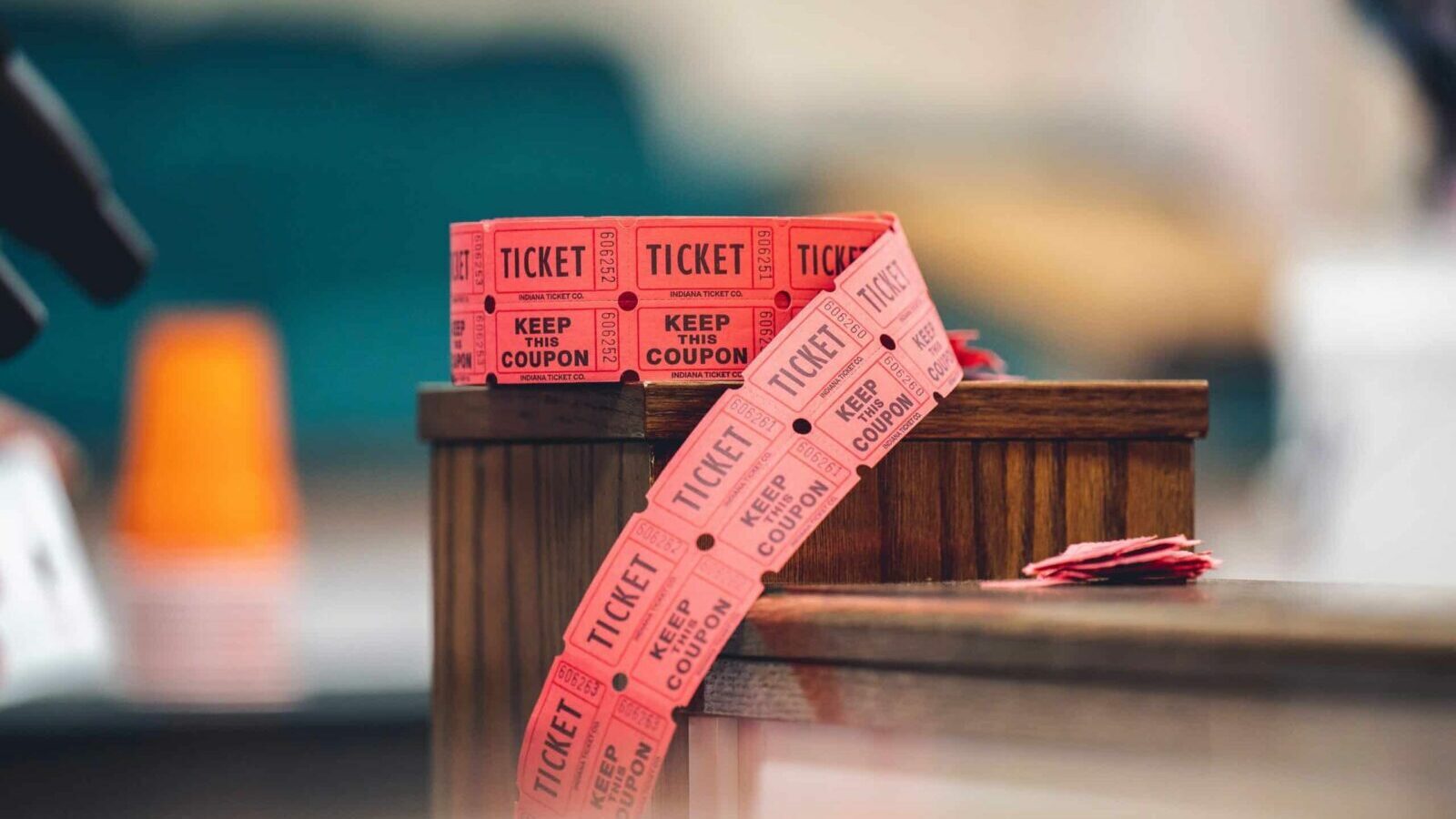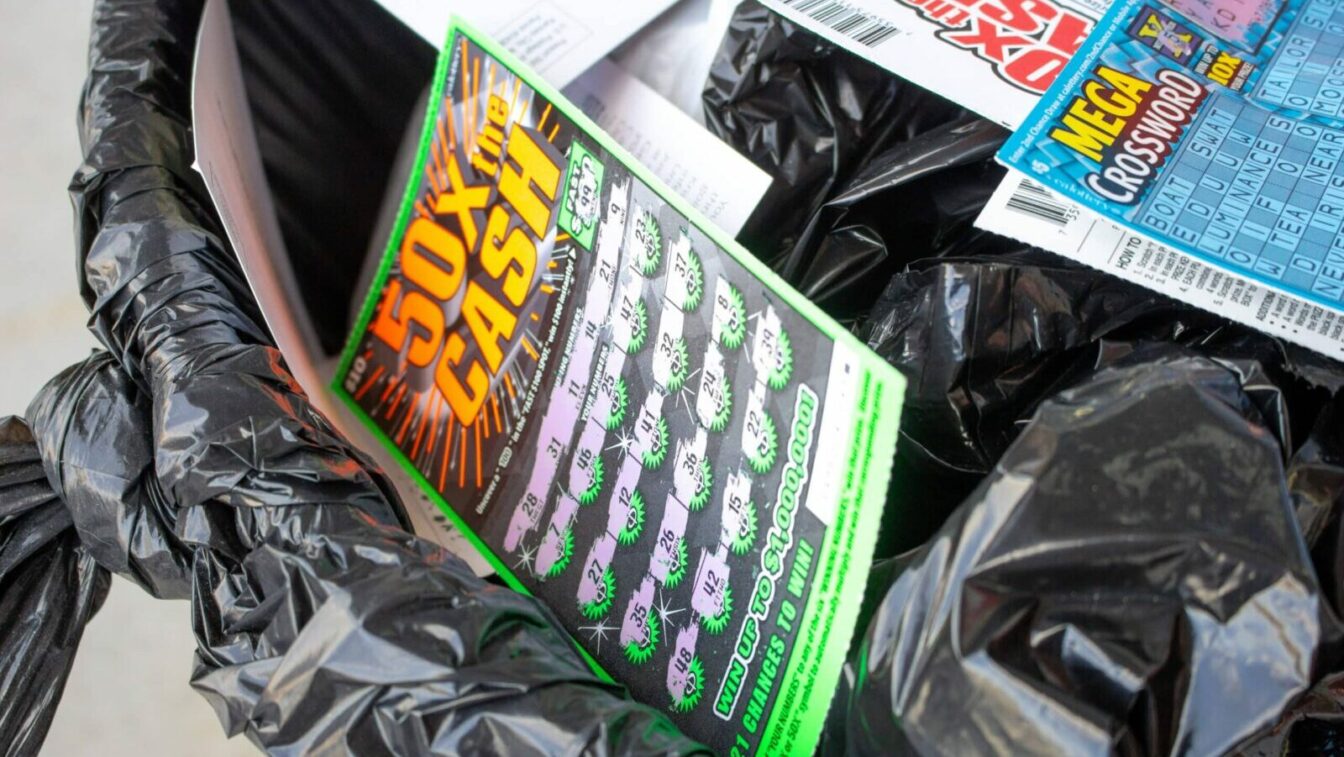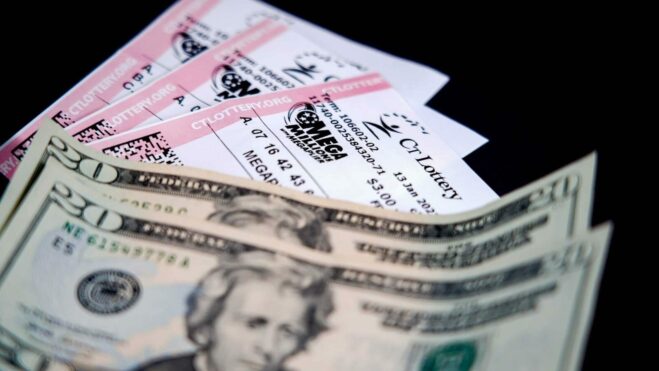All In On 50/50s: Lotteries, Basically, Without Government Oversight
If an organization wants to run a raffle legally, it must do some research. There are many limitations. Every state has its own rules.
3 min

During their May 1 home game against the Kansas City Royals, the Toronto Blue Jays could never seem to come up with a clutch hit. But “Andrew from Toronto” sure did.
As seen on the advertising graphic below, this Andrew fellow won the 50/50 raffle at that afternoon’s game at the Rogers Centre, to the tune of over $2.6 million (CAD). If that sounds an awful lot like a lottery win … it’s because there isn’t necessarily much difference between entering the 50/50 and playing the lottery.
The Jays Care Foundation has made a big part of its mission promoting the 50/50 raffle, in which 50% of the profits go to support charitable initiatives in the Canadian provinces of Ontario and Nova Scotia. The money collected in these raffles can go well north of the $5 million mark and it’s been marketed by the foundation as one of the biggest raffles in all of Major League Baseball.
So what, if anything, distinguishes a 50/50 raffle from a lottery contest?
50/50 raffles explained
Sandra Grauschopf, who has been working in the contests industry for more than 20 years, has written that in the grand scheme of things, a 50/50 raffle pretty much is a lottery.
Depending on the size and scope, a raffle has a grand prize and maybe some secondary prizes. Like a lottery, the grand prize grows based on the amount of money entered.
The main difference between a 50/50 raffle and a lottery is that a lawfully-run lottery is typically run by the government. In contrast, a 50/50 raffle draw is privately run by a non-profit or charitable organization.
These draws are labeled as “50/50” because the winner takes home 50% of the pot, and the organization running the draw gets the other 50%. In the case of Andrew from Toronto’s big win cited above, if the take-home amount was $2.6 million CAD, that means the total pot was $5.2 million CAD.
The legality question
A 50/50 raffle isn’t legal everywhere. They are not permitted in Alabama, Hawaii, or Utah — three states that also don’t allow lotteries. This could potentially change in Alabama, where legislators have been trying to get a gambling bill together and came close this year to legalizing lottery sales.
In those states where 50/50s are legal, one key element is that, like the lottery, it’s randomly drawn and not a game of partial skill like, say, blackjack.
Nevertheless, if an organization wants to run a raffle legally, it must do some research first. There are several limitations to be aware of. Some states limit how often an organization can run draws or how much it can charge for tickets.
Smaller entities like legions, churches, and local sports teams can often just research the local laws and go from there, but organizations that want to run something on the larger side are advised to consult with a gaming lawyer.
Ticket sales
According to CharityAuctionsToday, a website that helps raffle planners and auction organizers understand state laws, certain states are very specific about how raffle tickets can be sold.
Eventgroove Products, a service that helps clients manage undertakings like raffles, prefers to sell tickets both in person and online. But certain states don’t permit that hybrid model and have prohibited online sales. For example, Arkansas, California, Indiana, Kansas, Minnesota, New Mexico, Texas, Washington, and Wisconsin all have laws against online raffle ticket sales.
One of the reasons behind the online sales prohibition is that online sales can lead to raffles reaching massive prize amounts, especially if people from out of state can make those online purchases. When the prize pools get large enough, the 50/50s become gambles that can outshine a state’s lottery offering — which is not what lottery organizers want.
West Virginia is one example of a state that only allows online raffle tickets to be sold to people in-state.
Avoiding tax trouble
Lisa Bennett, the sales director for fundraising platform DoJiggy, explains that in order to keep the IRS happy, the gambling contest must be run by a qualified 501(c) nonprofit organization. “This means,” Bennett writes, “that all funds raised from a raffle must be sent directly to a 501(c) organization and that the organization must agree to take responsibility for the legal compliance of the raffle fundraiser.”
In other words, these organizations can’t just pocket the money off the books. Everything needs to be reported. The money needs to go where it was advertised to go.
For example, if a church is doing a raffle to help fund its 501(c) that gives food to the homeless, that’s where the money has to go — not to a fund to expand the church or pocketed off the books to buy the preacher a new Mercedes-Benz. Get caught pulling something like that, and the IRS will make hell seem like a cool place to be.
In the end, though, if regulatory compliance is adhered to and the money goes where it’s supposed to go, all parties win. Most large 50/50 raffles you’ll come across are legal and support good causes, which helps soften the blow of the reality that, just like with the lottery, the odds of winning are not in the player’s favor.





